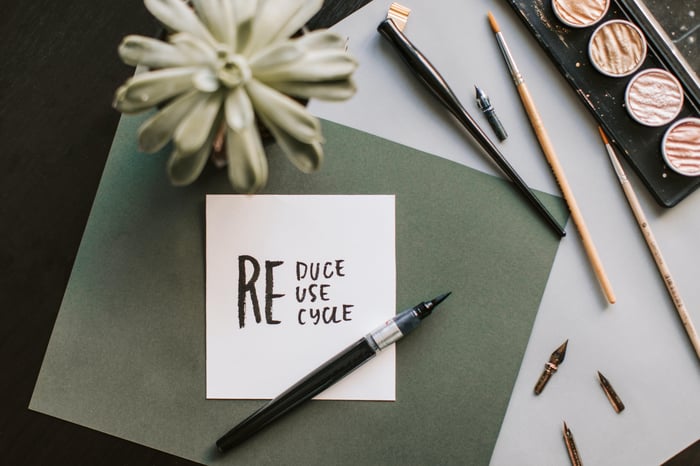
Ever since President Abraham Lincoln announced the last Thursday in November as the official Thanksgiving holiday, retailers caught on that people tend to get in the “holiday season” and start their Christmas shopping the day after. In the earlier days, accountants used to tally their books of accounts every day, and if the day was profitable, marked the day as “Black”. So, over the years, the day after Thanksgiving came to be known as “Black Friday”.
In recent years, activists have come up with an alternative to Black Friday: Green Friday. Unlike Black Friday, which is all about buying more goods, Green Friday is about taking the power into your hands and shopping consciously.
These tips will help you in your quest to shop mindfully:
1. Set your budget
Before you begin to consider buying anything, look at your savings and make a note of how much you think you should spend on these sales. If you're thinking of making a big purchase, talk to your friends or partner. Decide the amount that you're comfortable spending and then make sure you stick to it.

2. Know what you want
Make a note of the things you have, so you know what you’ll need in the next year. Before you begin shopping, create a list. Try to make a list as detailed as possible: You don't want any shirt, but a warm one to wear to work during the winter months. Going into the details will help you keep track of precisely what you need. Make sure you prioritize your purchases by keeping in mind the budget that you’ve set.
3. Do you really need it?
When you make the list of things you need, ask yourself: "Do I really need this?". It’s ok to buy something for pleasure; just make sure you have the finances for it.
When upgrading your electronics or your wardrobe, consider the hidden costs. Most people upgrade their cell phones in 20 months (even when the approximate life of most cell phones is 8-10 years, depending on the usage). So, when upgrading, ask yourself if the upgrade would really enhance your life. Similarly, when upgrading your wardrobe, consider if your current clothes have served their purpose and how you're going to dispose of them. Fast fashion has a negative impact on the environment, and we need to consider how we can help curtail the problem by shopping consciously.
Also, ask yourself what would happen if, say, one month later, you see a “better” version of the product. How would that make you feel? Decide if you really need this product, based on your answer.

4. Learn more about brands
Take the time to visit the brand’s website and see what they stand for. Keep in mind that the lowest price isn’t always a fair price. Depending on what you’re looking for, check if there’s any certifying agency. If you’re looking to ensure that the people producing the goods receive a fair wage, look for fair-trade certification. If you’re looking to ensure that the product is 100% vegan and cruelty-free, read these tips on how to know if a product is cruelty-free.
5. Don’t feel pressured to buy
When you visit a store, the salespeople may try to convince you to spend more in their store. If that’s a bit daunting for you, take a deep breath. Know that they’re doing their job, and you have the power to say no.

6. Be aware of the retail marketing tricks
From the way the prices are mentioned to the music playing in the store, everything’s geared towards making people spend more time looking at the products, and thus, spend more. To counter this, make sure you have the list you created on hand, and stick to it.
7. Cash or credit
Try to pay as much as you can with cash. If you do use credit, your goal should be to clear the credit card bills by the end of the month. When you let the credit go on, you start paying interest. So, that branded bag you got at a 10% discount may end up costing you even more than retail.






